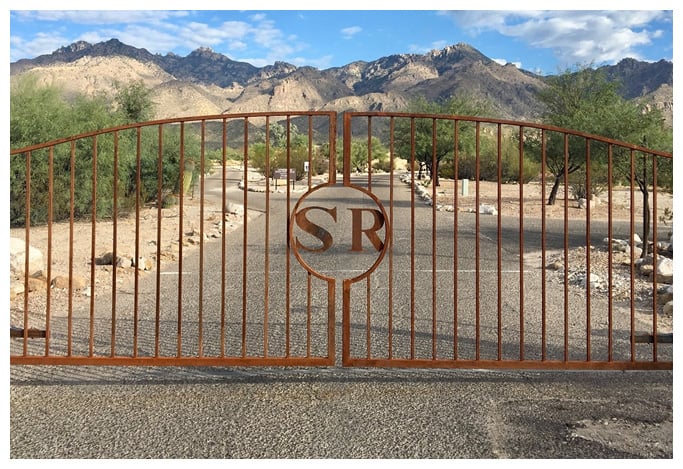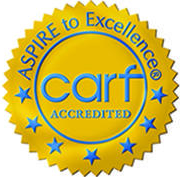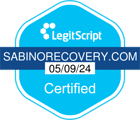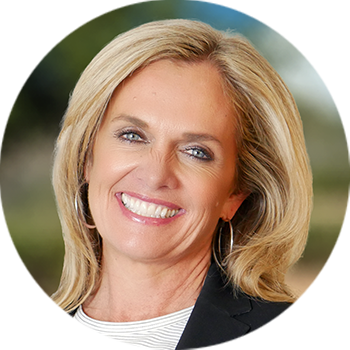Prescription Drug Rehab Center in Tucson, Arizona
This holistic method addresses not only the addiction, but also the underlying trauma that often contributes to the abuse of prescription drugs. The goal is to encourage a comprehensive healing process that encompasses both physical and mental health aspects.
Don’t wait. Begin healing today at our residential drug abuse treatment center.

Is Addiction Impacting Your Life?
Take The First Step To True Healing Today!
What Are Prescription Drugs?
Prescription drugs are medications that healthcare professionals prescribe for the treatment of specific medical conditions. These drugs undergo rigorous testing and are generally safe when used as directed. However, prescription drug misuse can lead to dependency and other health risks. Below is a list of commonly abused prescription drugs.
Prescription stimulants are often prescribed for conditions like ADHD, enhancing focus and impulse control. They work by increasing the levels of neurotransmitters like dopamine in the brain. Common medications in this category include
- Adderall
- Ritalin
- Concerta
While effective for treatment when used as directed, misuse can result in dangerous side effects such as elevated heart rate and high blood pressure.
Opioids are powerful pain relievers primarily used for treating acute and chronic pain. Opioid painkillers work by binding to opioid receptors in the brain, blocking pain signals. Common prescription opioids include:
- Oxycodone (OxyContin)
- Hydrocodone (Vicodin)
- Morphine
Though effective, they carry significant risks, such as the potential for addiction and overdose, especially when misused.
These drugs are generally safe for short-term use but can lead to dependency and other adverse effects when misused or used over extended periods.
Contact Our Admissions Team Today
How Do You Become Addicted to Prescription Medications?
When you continue taking medications beyond their intended use or dosage, you are abusing prescription drugs. Your body may develop tolerance and dependency during this process, increasing the chances of addiction. Keep in mind that not everyone who uses prescription medications will become addicted, but misusing them increases the risk.
Following your doctor’s recommendations and seeking help if you notice signs of dependence can prevent prescription drug addiction. Remember to be cautious with your medication usage to avoid unintended consequences.

Testimonials
![]()
![]()
![]()
![]()
![]()
Regina
I am so happy that I chose Sabino to begin my recovery. I have suffered for years from depression, anxiety, panic disorder, and PTSD. The programs that are offered here at Sabino have been truly phenomenal in helping me recover. I also appreciated the professional staff that are here on duty 24/7, which helps create a safe environment. Sabino Recovery uses effective “one on one” methods that meet each person’s individual needs because they evaluate and have a better understanding of your personal traumatic experiences. Thanks Sabino, I am truly grateful to you and the Sabino family.
![]()
![]()
![]()
![]()
![]()
J.A.
A beautiful facility! Staff sets the tone and kindness that residents easily follow. Thank you, Sabino Recovery!
![]()
![]()
![]()
![]()
![]()
Pamela
The program at Sabino Recovery works! I emerged from an accumulation of unrecognized emotions, issues of trust, and unresolved grief and loss. 35-days of effective integration of customized quality therapy reconnected my mind, body, spirit, and I am worth it! I had masked emotions and hurtful events for decades with alcohol. At Sabino Recovery I safely focused deep within to unleash harmful secrets and self-degradation. Tools of recovery were practiced, not just presented. Integrative therapies were tailored to my circumstances, thus were effective. This residential program is like no other. For me, Sabino Recovery delivered what was professed. I am forever grateful for this gift of healing.
![]()
![]()
![]()
![]()
![]()
Mike
Life changing experience. Wonderful staff. Wonderful program. Thanks for everything!
![]()
![]()
![]()
![]()
![]()
Darcy
It was great to begin my recovery in a group environment with so many knowledgeable nurses, therapists, BHT’s, and others around for support. The equine therapy, challenge course, family week, and daily therapies all work together seamlessly, allowing me to leave Sabino as a healthier and stronger person!
Signs and Symptoms of Prescription Drug Abuse
If you suspect someone is struggling with prescription drug abuse, it’s essential to recognize the signs and symptoms. Some common indicators include:
- Behavioral Changes: Mood swings, secrecy, social withdrawal
- Physical Symptoms: Nausea, constipation, unexplained weight loss or gain
- Cognitive Impairments: Poor concentration, memory issues, decline in performance at work or school
- Tolerance: Needing higher doses of the medication to achieve the same effect
- Withdrawal Symptoms: Range from mild irritability and nausea to severe cases involving seizures, hallucinations, or depression
- Doctor-Shopping: Consulting multiple healthcare providers to obtain prescriptions
What Are the Risks of Prescription Drug Abuse?
Prescription drug abuse can lead to a variety of risks for your health and overall well-being. Here are some of the potential risks associated with prescription drug abuse:
Physical Health Risks
- Overdose: The risk of overdose increases significantly with prescription drug abuse, and it can be fatal.
- Dependence and Addiction: Over time, abuse can lead to physical and psychological dependence, also known as chemical dependency.
- Liver Damage: Many RX medications can be hard on the liver, especially when taken in higher-than-recommended doses.
- Kidney Damage: Similar to liver damage, certain medications can also affect kidney function adversely.
- Gastrointestinal Issues: Abuse of some prescription drugs can lead to constipation, diarrhea, or other gastrointestinal issues.
- Respiratory Problems: Opioids, in particular, can depress breathing, potentially leading to life-threatening respiratory issues.
- Cardiovascular Issues: Stimulant abuse can result in elevated heart rate and blood pressure, which can be dangerous for the heart.
- Neurological Effects: Abuse can lead to a range of neurological issues, including memory problems, confusion, and other cognitive impairments.
- Hormonal Imbalance: Some medications can disrupt the normal functioning of hormones in your body, which can have a cascade of negative effects.
- Physical Deterioration: Over time, substance use disorder can lead to neglect of personal hygiene and nutrition, causing a general decline in physical health.
Psychological Risks
- Mental Health Disorders: Abuse of RX medications can either induce or exacerbate mental disorders like depression, anxiety, and psychosis.
- Cognitive Decline: Certain medications can affect cognitive functions, leading to memory loss and reduced decision-making abilities.
- Mood Swings: Many prescription drugs can affect your mood, potentially leading to irritability, depression, or euphoria.
Social and Economic Risks
- Legal Consequences: Possessing or distributing RX medications without a prescription is illegal in many jurisdictions and can result in imprisonment or fines.
- Relationship Strains: Substance abuse often leads to strained relationships with friends and family due to erratic or abusive behavior.
- Employment Risks: Drug abuse can result in decreased productivity, job loss, and financial hardship.
- Academic Decline: Particularly among younger people who abuse prescription drugs, drug abuse can result in poor academic performance and even expulsion from educational institutions.
Prescription Drug Abuse in Teens
Prescription drug abuse is a growing issue, especially among teens, with many misusing medications like opioids, anti-anxiety drugs, and stimulants. Teenagers often take these drugs without a prescription or misuse their prescribed medications, leading to dangerous consequences. According to SAMHSA, prescription drug misuse is one of the fastest-growing drug problems in the U.S., affecting millions of Americans, including teens.
One reason this issue is particularly concerning for teenagers is its impact on brain development. The human brain continues to develop into the mid-twenties, with the prefrontal cortex—the area responsible for decision-making and impulse control—being one of the last parts to mature.
Drug abuse during these formative years can severely damage neural pathways, leading to poor judgment, increased risk of sexually transmitted diseases, and co-occurring drug use. Long-term effects can include emotional distress, psychosis, depression, and even neurological disorders like Alzheimer’s.
Teens abuse these drugs for various reasons—some experiment for recreational purposes, while others unintentionally become addicted after being prescribed the medication for legitimate health concerns. Regardless of the reason, the side effects can be severe, ranging from drowsiness and confusion with opioids to paranoia and high blood pressure with stimulants. Drug abuse in teen years can lead to addiction in adulthood. Early intervention is key to long-term recovery.
To address this crisis, it requires a collective effort from parents, teachers, churches, and other community members. Education about the dangers of prescription drug abuse and promoting healthy coping mechanisms are key strategies to reducing teen misuse.
When Do You Need a Prescription Drug Addiction Rehab?
If If you’re struggling with prescription drug addiction, it’s essential to seek treatment as soon as possible. Recognizing that you have a problem and need professional help is the first significant step towards recovery. Some signs that indicate you might need an RX drug addiction rehab center include:
- Noticeable changes in your mood or behavior
- Frequently requesting early refills from your healthcare provider
- Taking higher doses of the medication than prescribed
- Borrowing or stealing prescription drugs from others
- Experiencing withdrawal symptoms when not using the medication
Once you identify these signs, it’s crucial to seek support from a rehab center, like Sabino Recovery. We can properly assess your situation and recommend the most appropriate treatment plan for prescription drug addiction.

Prescription Drug Addiction Treatment in Tucson, AZ
When it comes to prescription drug addiction, it’s essential to choose an effective treatment option tailored to your needs. A common first step is getting rid of the toxins in your body with medical supervision, which helps manage withdrawal symptoms.
Next, most people addicted to prescription drugs require residential care. This option allows you to receive comprehensive support in a structured, controlled environment. A customized treatment plan addresses the underlying issues and causes of addiction and promotes long-term recovery.
Partial hospitalization programs (PHP) offer a middle ground between residential and outpatient care. PHPs involve intensive therapy sessions during the day but enable you to return home in the evenings.
Finally, outpatient treatment is an option for those who have already completed residential treatment. This flexible approach fits around your daily schedule, allowing you to maintain personal responsibilities while attending therapy sessions and support groups.
Ultimately, it’s vital to assess your unique situation and select a prescription drug treatment option that aligns with your recovery goals.
Sabino Recovery’s Prescription Drug Rehab
At Sabino Recovery, we specialize in treating prescription drug addiction along with co-occurring mental health disorders. To ensure personalized care, we begin with a thorough assessment of your unique situation, enabling our team of mental health professionals to devise a comprehensive treatment plan designed for your specific needs.
Our residential rehab program offers a holistic approach, addressing both addiction and underlying traumas to facilitate overall recovery. To achieve this, we provide intensive individual therapy sessions with 50 one-on-one sessions in 35 days.
We also offer group therapy, maintaining a small and focused environment by limiting groups to no more than eight participants. This ensures deeper connections and fosters the necessary emotional support during your recovery.
Critical to the healing process is the involvement of family members. Sabino Recovery offers a robust family program, which takes place on campus. This includes dedicated family therapy facilitated by our family therapist to help rebuild relationships and provide mutual support.
By targeting both prescription drug addiction and underlying mental health problems, Sabino Recovery ensures comprehensive and personalized care every step of the way.
Types of Prescription Drug Addictions We Treat
- Benzodiazepines
- Oxycodone
- Percocet
- Xanax
- Fentanyl
- Oxycontin
- Valium
- Opioids
- Painkillers
- Vicodin
Therapeutic Modalities We Use to Treat RX Drug Abuse
- Cognitive Behavioral Therapy
- Expressive Art Therapy
- NeuroAffective Relational Model
- Meditation
- Dialectical Behavior Therapy
- Gestalt Therapy
- Somatic Experiencing
- Eye Movement Desensitization and Reprocessing Therapy
- Existential Therapy
- Narrative Therapy
- Mindfulness-Based CBT (MCBT)
In addition to these modalities, we also emphasize the importance of integrative therapies in our program. These therapies contribute to comprehensive and well-rounded healing. Some of our integrative therapies include:
- Acupuncture
- Reiki
- Cupping
- Breathwork
- Hypnosis
- Trauma Informed Yoga
- Therapeutic Art
- Cold Exposure Therapy
- Chakra Balancing
- Tai Chi
- Horseback Riding
- Myofascial Release
- Qigong
- Massage Therapy
- Tui Na Massage
- Assisted Stretching
- Therapeutic Horsemanship
- Personal Training
- BioEnergetic Medicine
We are confident in our ability to help our clients find a lasting solution to RX drug addiction using these evidence-based techniques and therapies.
Nationally Recognized & Accredited




Continuing Care After Prescription Drug Addiction Rehab
Your long-term recovery from prescription drug addiction depends on a well-designed continuing care plan. At Sabino Recovery, we begin developing this plan shortly after your admission, focusing on tailored strategies to manage cravings and maintain your progress.
As part of your continuing care, you may engage in medication management sessions and individual therapy or participate in a partial hospitalization program or intensive outpatient program. These components work together to provide a comprehensive support system for your ongoing recovery journey.
Additionally, Sabino Recovery offers a lifelong alumni program at no extra cost. This program includes individualized follow-up, weekly structured group Zoom calls, and alumni reunions, ensuring long-lasting connections and support throughout your recovery.
Begin Healing Today at Our Prescription Drug Addiction Treatment Center
At our prescription drug addiction treatment center, we provide life-changing care tailored to your unique recovery journey. We understand the complexities of prescription drug addiction and offer custom treatment plans to address your personal needs and challenges.
Our knowledgeable team of specialists works closely with you to navigate the process of healing, offering support and guidance every step of the way. With a neutral and empathetic approach, we strive to create a safe and comfortable environment for you to focus on your well-being.
The road to recovery may not be easy, but embarking on this journey can lead to lasting change. Don’t wait: contact Sabino Recovery today to start your path toward healing.




